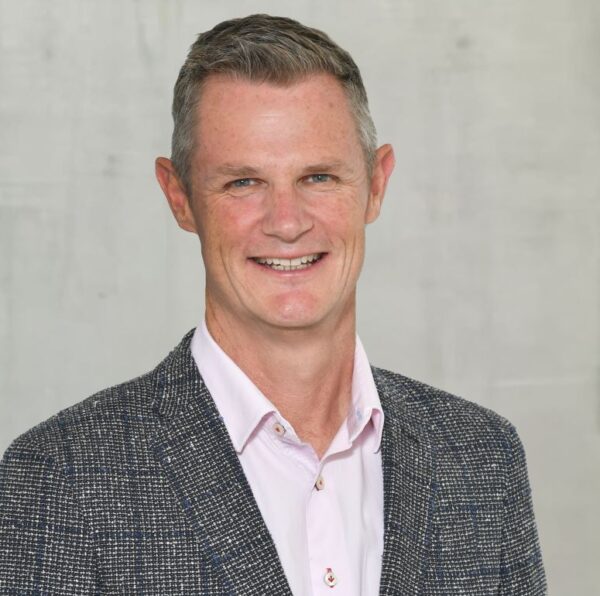Given the governance and leadership failures of last year it’s hardly surprising that, when we surveyed 10 organisational leaders last year, the qualities they most admired in their selection of chief executives were integrity, entrepreneurship, bravery, staff empowerment and penchant for innovation.
Agreed, the jury’s still out on how successful companies brave enough to tackle the Australian market will be, but chief executives who have hitched their wagons to this challenge received the biggest vote of confidence.
CEOs who made our most-admired list all demonstrated technical competence, humility, an ability to delegate and strong communication skills. Their youthful and enlightened approach to taking on difficult tasks despite the odds distinguishes these rising stars as new breed, according to Warehouse chairman, Stephen Tindall. Unlike the 1970s and 80s, he says there’s growing realisation that truly good business goes well beyond creating shareholder value.
What separates stand-out CEOs from the rest, according to Tindall, is greater willingness to work with government, to participate in collaborative solutions and, to work for outcomes that “address all stakeholder needs”.
For Jade Corporation’s Sir Gil Simpson the stand-out CEOs were the “doers” who took people along with them on solid strategy.
Surprisingly, Telecom CEO Theresa Gattung, hardly featured despite being the only Australasian woman to make it on to Fortune magazine’s 2002 list of the world’s 50 most powerful female executives. And Warehouse CEO Greg Muir featured only once.
Despite iterations to the contrary, there’s widespread suspicion that both incumbents are living in the shadow of their predecessors (Rod Deane and Tindall), now chairmen of their respective enterprises. There’s also perception that when it comes to the Fisher & Paykel empire, executive chairman Gary Paykel still runs the show.
Air New Zealand CEO, Ralph Norris, and public-sector dark horse and Ministry of Social Development CEO, Peter Hughes, are admired for having the courage to stand on the “bridge” to steer their ships through troubled waters. Interestingly, Norris’s predecessor, Gary Toomey, rated mention for his refusal to bolt when the going got tough.
While some recognised the achievements of Sky City CEO Evan Davies, and Auckland International Airport boss, John Goulter – and for that matter Gattung – few wanted to bestow what they regarded as gratuitous bouquets to organisations with monopoly or near-monopoly status.
For myriad of reasons, our panel of leaders declined to publicly rate their peers. Those who fronted-up to the challenge struggled to identify more than handful of worthy contenders. In fact, when it comes to displaying clear understanding of all the dimensions of the role of CEO – focusing on both short and long-term strategies – the list of outstanding performers is small group.
There was general agreement that much of any CEO’s success can be question of timing. For example, Ralph Norris, the most consistently admired CEO in 2002, was highly rated for the way in which he dealt with the full breadth of Air New Zealand issues and for his ability to rebuild the airline’s future.
But had Gary Toomey’s landing at Air New Zealand been switched with that of Norris, would the outcome have been different? Similarly, had Warrior’s CEO Mick Waston not taken up the turn-around challenge when he did, would the club’s fortunes be what they are today?
Stephen Tindall – chairman of The Warehouse Group chose:
Craig Norgate: CEO Fonterra. For his success at assuming the leadership mantle, dealing with 14,000 shareholders and bringing two super-companies together.
Theresa Gattung: CEO Telecom New Zealand. For her courage in getting on to the bridge and trying to steer the ship.
Ralph Waters: CEO Fletcher Building. or his ability to come from the home-appliance sector and apply his skills to another industry.
Chris Liddell: CEO Carter Holt Harvey. For his willingness to try new things, his innovative approach to creating 30 new companies and for thinking outside the box.
Greg Muir: CEO The Warehouse Group. For his success in Australia, reflected in the ‘red barns’ continuing growth story, while maintaining EBIT at world class levels.
Gil Simpson – founder and CEO of Jade chose:
Kevin Remmington/Ross Smith: CEOs of TSB and SBS Banks. For running successful, locally-owned banks without state support.
John Mayson: CEO Ports of Tauranga. For his ability to take river port and compete successfully with Ports of Auckland .
Gary Paykel: Executive director Fisher and Paykel. For creating an R&D icon within local manufacturing.
Craig Norgate: CEO Fonterra. For the way he took over the NZ Dairy-dominated business – even though he wasn’t the majority’s man. For his openness with shareholders and media and highly collaborative approach to disparate parties.
Peter Hughes: CEO Ministry of Social Development. For quietly and effectively getting on with the job of building bridges following the image-print of the former incumbent, Christine Rankin.
Ralph Norris – CEO Air New Zealand chose:
Ralph Waters: CEO Fletcher Building. Norris nominated only one true stand-out CEO in 2002 as New Zealand’s leading CEO. Identified in the recent Carmichael Singer Corporate Confidence Index, Waters’ ability to achieve so much in such short period of time is outstanding, believes Norris. The financial performance of the company is far beyond the expectations of the market. Strong and coherent strategies include the recent acquisition of the Laminex Group in Australia. Unobtrusive, highly credible style, and strong ability to inspire others.
Dick Hubbard – CEO Hubbard Foods chose:
Steve Tindall: Chairman The Warehouse Group. For the Group’s financial performance, corporate governance and the legacy he’s left to CEO Greg Muir. He’s shown Kiwi companies how to make successful foray into Australia.
Keith McLaughlin: Managing director Baycorp Advantage. For his style, people management skills and ability to build loyal team with strong morale.
Jon Mayson: CEO Ports of Tauranga. For the superb job at diversifying and growing the revenue and earnings of the business through multi-port strategy.
Gilbert Ullrich: CEO Ullrich Aluminum. For his sound entrepreneurial flair, strong underlying management skills, and exporting success.
Wendy Pye: CEO Wendy Pye Books. For her single-minded approach to tackling export markets and strong management skills.
Graeme Marsh – Chairman Scott Technology chose:
Ralph Norris: Chief executive Air New Zealand. For taking up the controls at Air New Zealand at the airline’s lowest ebb. By focusing on the basics he has stabilised the airline to level where it now has promising future.
Kevin Kilpatrick: Chief Executive Scott Technology. For developing young team of executives that has led Scott’s international sales to record levels through contracts with customers in Mexico, China, the USA and Australia.
Mark Waller: Chief executive EBOS Group. For taking relatively obscure medical and dental supplies company through very successful 10 year acquisition and internal growth period. He and his team have focused on core health and scientific sectors both in New Zealand and Australia with positive results.
John Marsh: Managing director Cooke Howlison & Blackwell Motors Group. For managing an experienced team in the motor group that’s become leader in the industry – with franchises for Holden, Toyota, BMW, Mazda and Isuzu Trucks.
Rod Duke: Chief executive Briscoe Group. For taking an under-performing company and through aggressively restructuring and strong focus on the home market has grown the Group into highly successful public company with strongly entrenched











